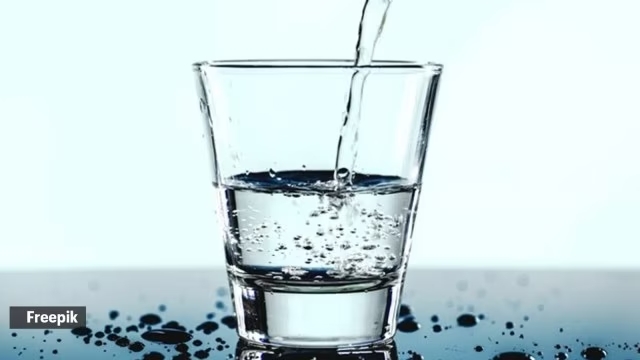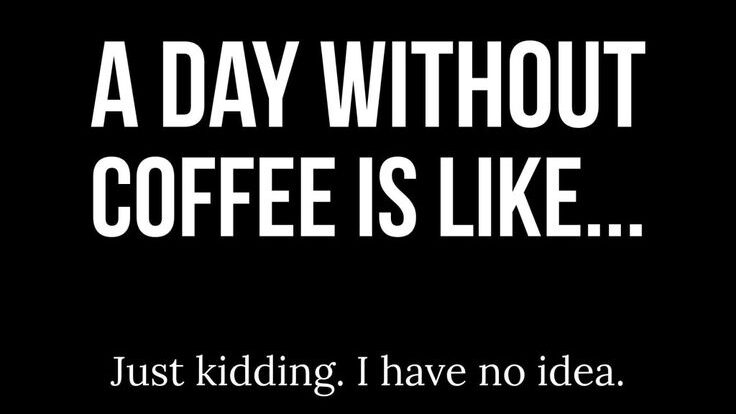Water fasting, often regarded as one of the oldest and most powerful health practices, is gaining more popularity as people look for natural ways to reset their bodies and improve overall wellness. If you’re curious about water fasting, its benefits, and how it works, you’ve come to the right place. Let’s dive in!

What Is Water Fasting?
Water fasting is the practice of abstaining from all food and beverages except for water for a period of time. Unlike intermittent fasting, which typically involves cycling between periods of eating and fasting, water fasting means refraining from calories altogether.
The Science Behind Water Fasting
When you stop eating, your body enters a state of fasting. During this period, your body shifts from using food for energy to utilizing stored energy, mainly in the form of fat. Once the body exhausts its immediate glucose stores, it begins to break down fat cells to fuel vital functions, a process called ketosis.
Beyond fat burning, fasting triggers various other health benefits. For example, water fasting stimulates autophagy, a natural process where your body cleans out damaged cells and regenerates new, healthy ones. This process is believed to support longevity, reduce inflammation, and boost overall well-being.
Health Benefits of Water Fasting
Water fasting offers numerous potential health benefits, but it’s important to approach it carefully and mindfully. Some of the most notable benefits include:
- Weight Loss: One of the main reasons people fast is to lose weight. Water fasting encourages your body to burn stored fat for energy, making it an effective method for fat loss. However, it’s essential to note that the weight lost during fasting is typically a combination of fat, water, and muscle mass, so it’s crucial to follow a proper refeeding plan after the fast.
- Improved Insulin Sensitivity: Water fasting helps lower insulin levels, allowing your body to more efficiently use stored fat for energy. This is particularly beneficial for those with insulin resistance or those at risk of type 2 diabetes.
- Cellular Repair and Autophagy: Fasting has been shown to stimulate autophagy, which allows your body to repair and replace damaged cells, leading to improved cellular health. This process may help reduce the risk of chronic diseases and accelerate recovery.
- Mental Clarity: Many individuals report increased mental clarity and focus during fasting. The body’s shift to ketosis provides a more consistent energy source, potentially boosting brain function and cognition.
- Longevity: Some studies suggest that fasting can extend lifespan by improving metabolic health and reducing oxidative stress. While more research is needed, water fasting appears to have promising anti-aging effects.

Coffee and Weight Loss During Fasting
Coffee, particularly black coffee, can play an interesting role during a water fast and weight loss journey. Though it’s not part of traditional water fasting (which typically only includes water), black coffee is low in calories and can offer several benefits when consumed during fasting periods:
- Boosts Metabolism: Coffee contains caffeine, which is a natural stimulant known to enhance metabolic rate. Drinking coffee while fasting can temporarily boost your metabolism, increasing your ability to burn fat. Studies have shown that caffeine can enhance fat oxidation, leading to greater fat loss during a fast.
- Suppresses Appetite: One common challenge during fasting is hunger. Caffeine has appetite-suppressing properties, which can make it easier to stick to your fasting window without feeling overly hungry. This makes it a helpful tool for those struggling with cravings.
- Improved Focus: The caffeine in coffee can also help maintain mental clarity and focus, especially when you’re fasting for extended periods. Many people find that the stimulant effects of caffeine help them stay sharp and energized without food.
- May Enhance Fat Burning: Some research suggests that consuming caffeine may increase the release of fat from fat cells, which can be used as fuel during the fasting period. This means you could potentially burn fat more efficiently while fasting if you incorporate black coffee into your routine.
How Long Should You Fast with Water?
The length of time you choose to water fast depends on your goals, experience, and health status. Common fasting durations range from 24 hours to several days. Beginners typically start with shorter fasts and gradually increase the duration as their body adapts.
- Intermittent Water Fasting: A popular approach for beginners is fasting for 16-24 hours, a practice known as intermittent fasting. This allows your body to get accustomed to fasting without going overboard.
- Extended Fasting: Extended water fasts typically last from 48 hours to 72 hours or more. These longer fasts are usually undertaken by more experienced individuals and should always be done with professional guidance, particularly if you have underlying health conditions.
Breaking a Fast
The way you break a fast is just as important as the fast itself. After an extended period of fasting, your digestive system has been inactive, and it’s crucial to reintroduce food gradually. Breaking the fast incorrectly can lead to digestive discomfort and even refeeding syndrome, a potentially dangerous condition.
Here’s how to safely break a fast:
- Start with Small, Easy-to-Digest Foods: Begin by consuming light, liquid foods like bone broth, fresh juices (without added sugars), or diluted smoothies. These foods are gentle on the digestive system and help ease your body back into digestion.
- Avoid Heavy Meals: Avoid jumping straight into solid, heavy meals, as your body may struggle to digest them after a prolonged fast. Foods like meats, fried foods, and heavy carbs can overwhelm your digestive system.
- Eat Small Portions: Start with small portions and chew your food well. Your stomach may have shrunk during the fast, and large meals could cause discomfort or bloating.
- Gradual Introduction of Solid Foods: After a day or two of consuming liquid-based foods, you can start introducing soft solids like steamed vegetables, fruits, or salads. Gradually work up to more complex meals over a few days.
- Stay Hydrated: Continue to drink plenty of water as you break your fast to support your digestive process and avoid dehydration.
- Monitor Your Body: Pay attention to how your body reacts to the refeeding process. If you experience bloating, nausea, or other discomforts, consider slowing down the refeeding process and sticking to simpler, liquid foods for a longer period.
The Longest Fast on Record
The longest fast on record is a remarkable 382 days, performed by a man named Angus Barbieri in 1965. This extraordinary water fast took place under medical supervision and helped Barbieri shed an incredible 276 pounds (125 kg). While this is an extreme case, it demonstrates the power of fasting and its potential for profound weight loss and health benefits.
However, it’s important to note that such long fasts should never be attempted without medical supervision. Extended fasting, especially over several days or weeks, can carry risks, and it’s crucial to approach such practices with caution.
Books on Water Fasting
If you’re interested in learning more about water fasting and its benefits, there are several books—both modern and older—that can offer deeper insights. Here are a few noteworthy ones:
- “The Science and Fine Art of Fasting” by Arnold Ehret
Published in the early 20th century, this classic book is a foundational work in the field of fasting. Ehret argues that fasting is a key tool for cleansing the body and achieving vibrant health. He discusses both the physiological and spiritual aspects of fasting, with a focus on long-term wellness. - “Fasting and Eating for Health” by Joel Fuhrman, M.D.
This book offers a modern, scientifically backed approach to fasting. Dr. Fuhrman, a leading expert in nutritional medicine, explores the role of fasting in healing chronic diseases, promoting weight loss, and extending lifespan. It’s an excellent read for anyone seeking a scientific perspective on fasting. - “The Complete Guide to Fasting” by Jimmy Moore and Dr. Jason Fung
While you may not want to engage with material by Jimmy Moore (due to recent controversies), this book, co-authored with Dr. Jason Fung, offers comprehensive insight into intermittent fasting, water fasting, and their applications for health improvement and weight loss. It also includes meal plans and fasting protocols for beginners. - “The Fasting Cure” by Upton Sinclair
This is an older book that dates back to the 1910s, written by the renowned author Upton Sinclair. It’s a great historical piece that highlights the benefits of fasting and contains detailed advice for fasting, along with personal accounts of those who have successfully undergone fasting regimes for health reasons.
Precautions and Safety Tips
While water fasting has many benefits, it’s important to fast safely. Here are a few tips to consider before starting a water fast:
- Consult a Doctor: Especially if you have any pre-existing health conditions like diabetes, heart issues, or eating disorders, consult a healthcare professional before beginning a water fast.
- Stay Hydrated: While it might seem obvious, it’s essential to drink plenty of water during your fast. This will help keep you hydrated and support your body in eliminating toxins.
- Listen to Your Body: If at any point you feel lightheaded, dizzy, or unwell, it’s essential to break the fast. Fasting should never come at the cost of your health.
- Breaking the Fast: Once your fast is over, don’t jump straight back into heavy meals. Start with something light and easy to digest, such as bone broth or a small serving of fruit, and gradually reintroduce solid foods to avoid digestive distress.
Conclusion: Is Water Fasting Right for You?
Water fasting can be a powerful tool for weight loss, health improvement, and detoxification. However, it’s not for everyone. It’s important to approach fasting with proper research, preparation, and caution. If you’re unsure whether water fasting is right for you, consider speaking with a healthcare provider to help determine a safe fasting plan tailored to your needs.
Remember, fasting isn’t a quick fix—it’s a lifestyle change that, when done responsibly, can support long-term wellness and vitality.
